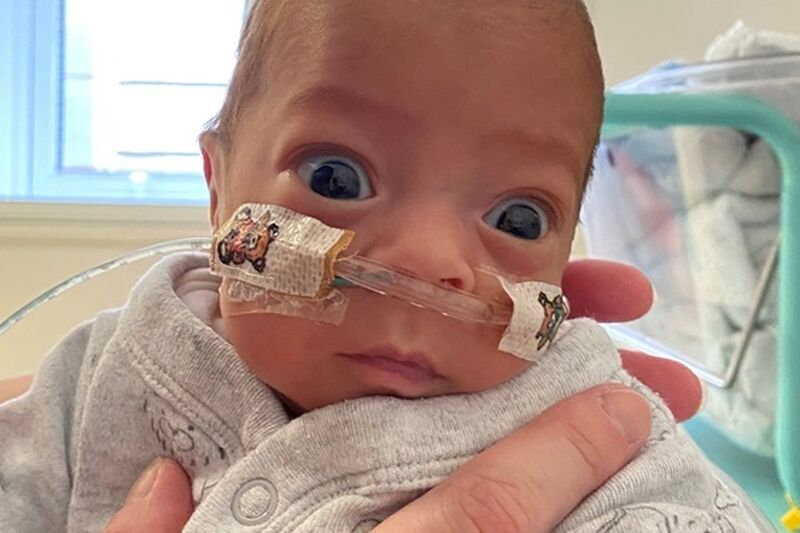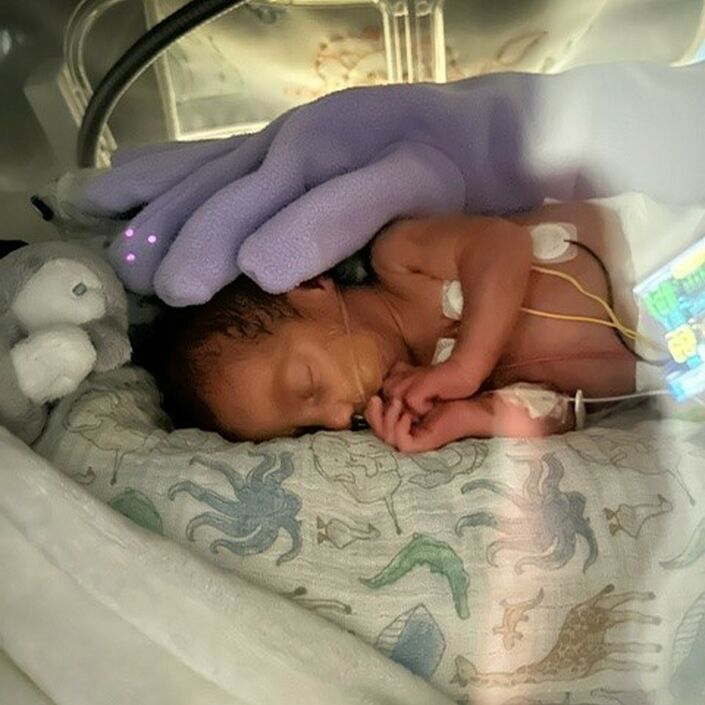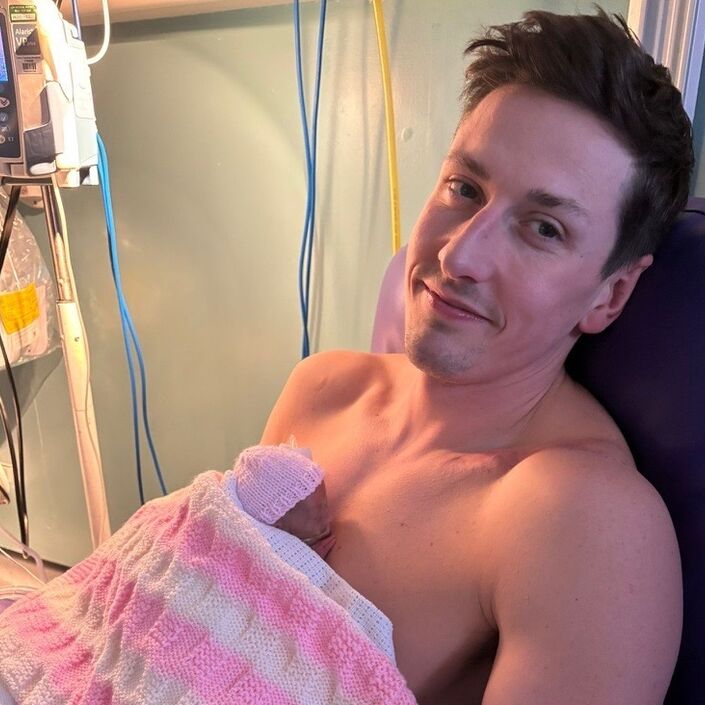I remember the moment everything changed as if it were both yesterday and a lifetime ago. Ian was born on Friday the 13th. Our tiny fighter arrived at 26 weeks’ gestation, a featherweight at 730g. We went into hospital thinking my wife might be a few weeks early, and overnight it became an emergency. Our checks were at Queen Charlotte Hospital, and we had to make an urgent transfer from St Mary’s Hospital to Chelsea & Westminster Hospital. I still picture the blur of nurses, the worry on my wife’s face, and the early evening arrival at the maternity ward’s operating theatre, and later where Ian was rushed into the Neonatal Intensive Care Unit (NICU) late evening. The delivery, blood transfusion team, and the NICU team were all there, so the theatre felt really packed.
My wife being 26 weeks pregnant when he was born meant everything moved at a frantic pace. He was so small that the first time I saw him he looked like a glowing light inside the incubator. He had tubes & lines, and the machines hums and beeps gently around him. The neonatal doctors received me warmly and explained the medications and what to expect, but words only go so far when you’re balancing shock, relief, and fear.
Those 48 hours were a haze of visiting hours, a quick solo celebratory meal, alternating between my wife’s recovery area and the NICU every few hours, and learning how to be useful in a unit whose routines were dominated by clinical needs. My first Kangaroo care (holding him skin-to-skin) was a revelation. For hours, nothing else mattered: the lightly pulsating rhythmic heartbeat, his tiny hands resting on my thumb, & the slow steadying of both our pulses. Those moments anchored me.
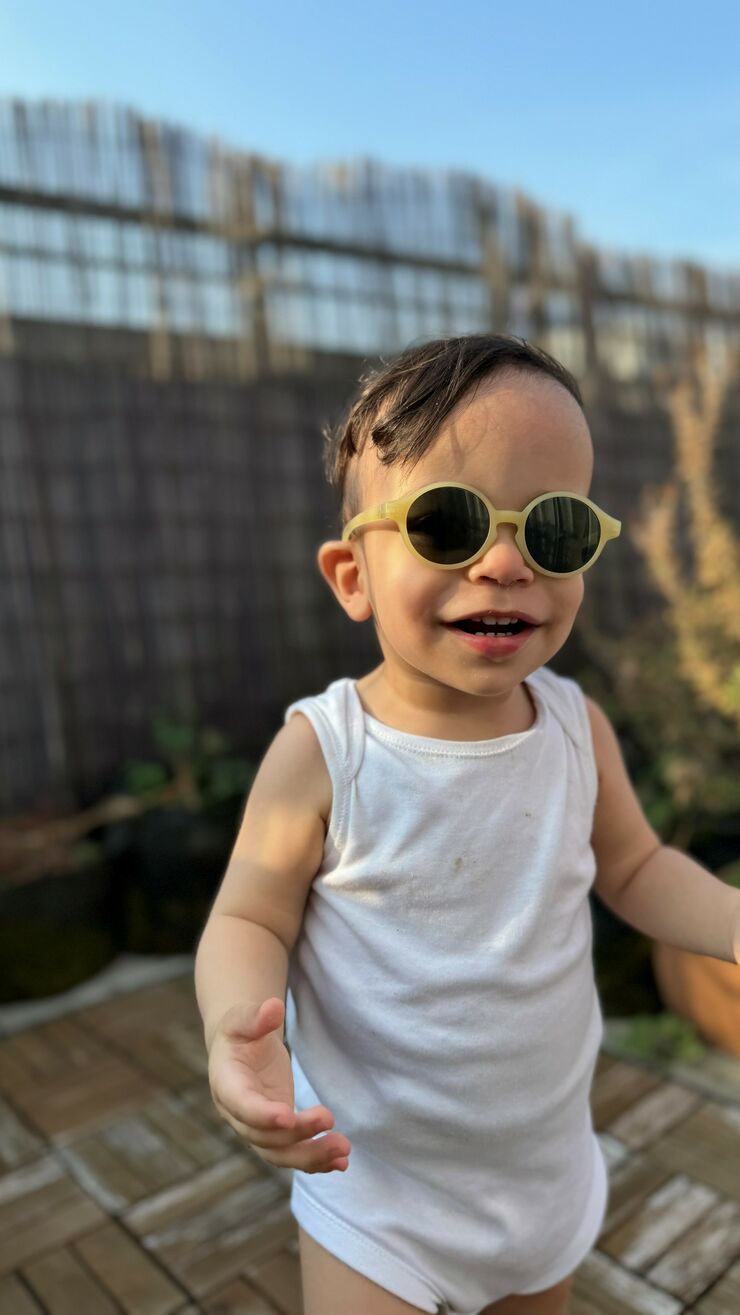
Ian stayed in NICU for 99 days. During that time, we went through cycles of progress and setbacks — shifts between ventilator support, CPAP, high or low flow oxygen, cannulas, blood transfusion and then tiny steps towards breathing on his own. We celebrated the first time he fed from a tube, the first time he tolerated a bottle, the first time when he latched on (and learned how) to breastfed (and did it for more than 5 minutes), the day they reduced his oxygen, and took note of every single gram of weight gained. After 99 days — just one day before his expected due date — we took him home oxygen-free. The nurses did not line the corridor to clap us out but it was an emotional and I cried the whole way.
The neonatal unit impacted my mental health and well-being. The NICU was a pressure cooker for my emotions. I felt constant anxiety and helplessness in the early weeks: fear that something would go wrong, guilt that I couldn’t fix it, exhaustion from the relentless schedule. There were days when I felt disconnected from the outside world: friends’ normal lives carrying on while ours was paused in that small incubator or cot. I also experienced moments of survivor’s guilt when I saw other families in worse situations. The long uncertainty wore on my sleep & made the simplest decisions feel heavy.
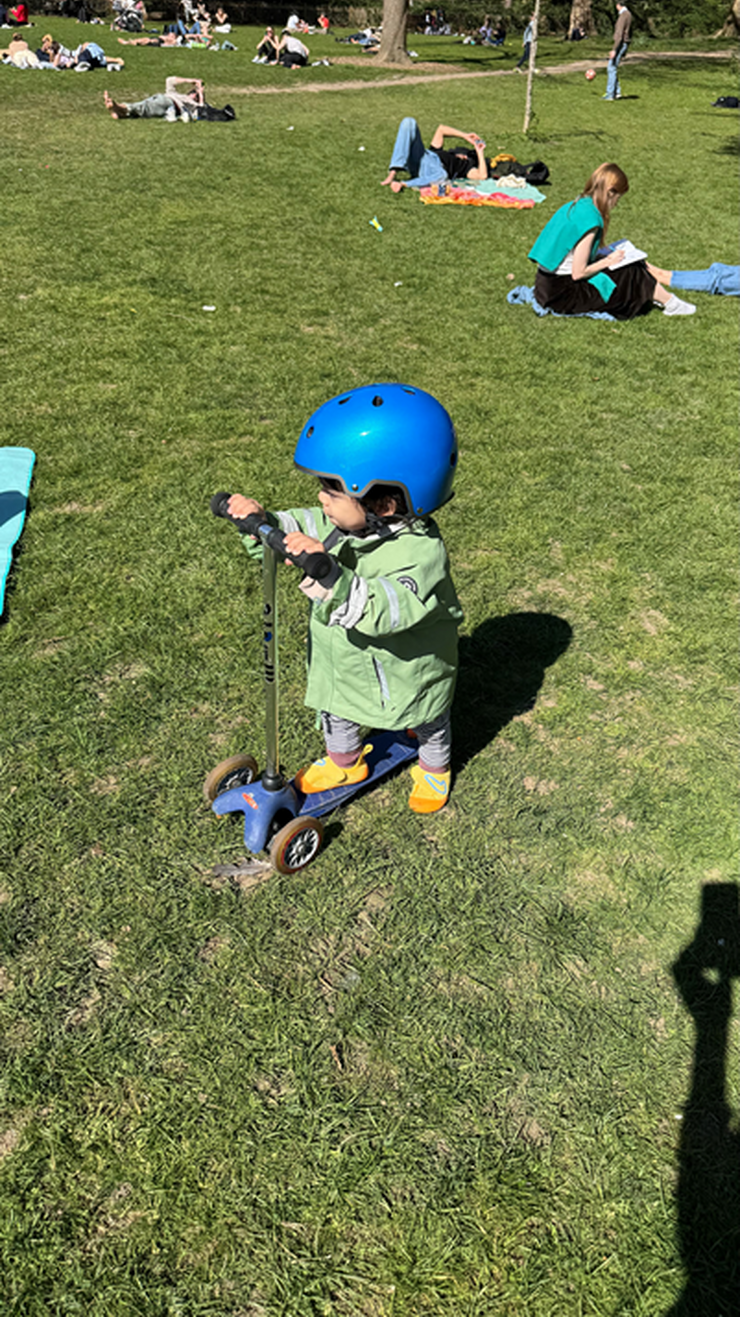
I received mental health support while on the unit. The NICU team offered practical & emotional support. The nurses & neonatal consultants were compassionate and patient with our questions. The unit had a psychologist specialist available for conversations; I reached out on a couple of occasions for coping strategies and to manage the anxiety that would come during the quiet hours. Peer support from other parents in the unit & honest chats in the milk feeding room was enormously validating. If your unit has those links, use them. They helped me feel less alone.
The biggest challenges we faced during neonatal care were the relentless uncertainty & the loss of control. You learn to live from update to update: “stable for now,” “improving,” “we’ll see tomorrow.” Practical challenges compounded emotional ones: expressing milk supply under stress, juggling living practicalities (travel, work communications), and fighting the constant low-level fear that he might regress. Another hard piece was the delayed ability to parent in a “normal” way: normal feeding, comforting, and taking him home were all postponed. He had to learn how to breastfeed.
Overall, we had good access to information. The clinical team explained test results, treatment plans, and made time to answer questions. Still, medical language and the speed of events can make it hard to absorb everything. I learned to take notes during rounds and to ask for explanations twice. I wish we had written summaries or a single contact person as it will make things much easier on the harder days.
We were told about Bliss (a UK charity) while we were on the unit. I saw a leaflet in the family room, and it had their resources displayed. Knowing such charities exist felt like an extra lifeline: practical checklists, parent stories, and information about what to expect make a real difference in those first, bewildering weeks.
Bliss offered clear, reliable, parent-centred information that cut through the fog of medical terms and worry. Their peer support and practical guides were exactly what I needed between consultant updates. For parents in a NICU, having an independent source of compassionate, practical help is invaluable.
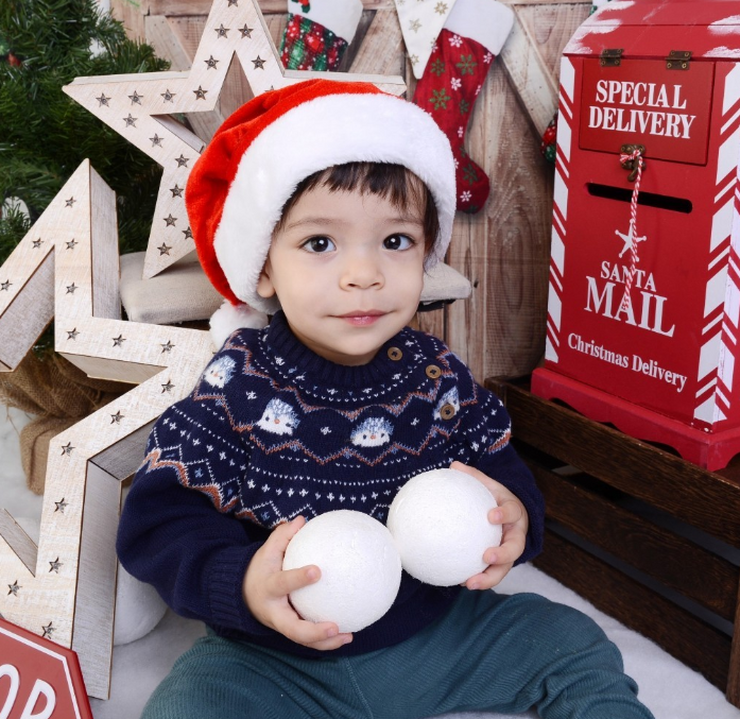
The most critical advice I would give to other parents going through the same thing is to accept help. People want to help but often do not know how.
Be specific about what you need (meals, a text or call check-in on your baby when you are at home). Keep a journal or notes of daily changes; it helps you see progress and gives you questions for rounds. Take kangaroo care and holding whenever it is safe. those minutes matter more than you can imagine. You will get used to the cables, discomfort, and restrictions. Pace yourself: this is a marathon, not a sprint. Rest when you can and protect short pockets of sleep.
Use peer support (other parents on the ward) and charities like Bliss; they normalise your feelings and provide practical tips.
Ask for clear explanations, and do not be afraid to ask the same question twice. Stress makes it hard to remember.
Be kind to yourself about “not being the parent you expected to be”. Parenting in NICU looks different but it is still parenting.
At discharge Ian was breathing unaided and feeding better every day; we came home oxygen-free one day before his original due date. Those early months at home were about catch-up: weight gain, appointments with community neonatal follow-ups, and lots of cuddles. He was small but feisty, a typical preemie fighter. Over time he began to bridge the developmental gaps (corrected vs actual age) and catch-up on milestones.
The anxiety that dominated the NICU days eased into the quieter concerns of any new parent, mixed with gratitude for how far we had come. His first flight was to Singapore at 12 months corrected age. We have since brought him to Taipei, Athens, and Vienna. We never take things for granted and really appreciated all the support we have been given with especially the NHS doctors, nurses and all the charities that have supported neonatal babies.
